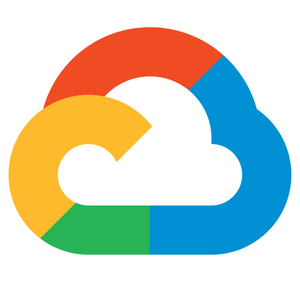
Google Cloud Platform Podcast
Google Cloud Platform
- 25 minutes 34 secondsHow UniSuper is helping Australians get the best of their superannuation fund investments with cloud
In this special episode, we are featuring That Digital Show. In Australia, every employee is required to select their superannuation fund of choice to help them invest a portion of their income. Having celebrated its 40th anniversary recently, UniSuper, one of Australia’s largest superannuation funds, is committed to delivering value and efficiency for its members. Started as a fund for the higher education and research sector, it has now opened its platform to all industries across the country.
Today, UniSuper invests more than $120 billion on behalf of more than 620,000 members. With the new Treasury Laws Amendment Act 2021, Your Future, Your Super, that aims to improve the outcome of superannuation funds for Australians, UniSuper decided to undergo a data centre transformation, taking on an 80/20 rule on cloud hosting and adopting the right digital technologies to improve its performance and portfolio.
In this episode, Angelo talks about how Google Cloud VMware Engine (GCVE) underpins UniSuper’s shift to the cloud as it moves existing VMware-based workloads from on-premises data centers to the cloud. This enables the organization to quickly scale up while having the flexibility and agility it needs to drive operational efficiencies as it continues to deliver the best returns for its customers. He also shares how the COVID-19 pandemic presented him with some crucial moments of thought that have resulted in some of the changes in best practices across the organization today.
Angelo Furina, Head of Enterprise Infrastructure & CloudAngelo is the Head of Enterprise Infrastructure and Cloud at UniSuper and is passionate about business transformation and bridging the gap between technology and business strategy. With more than a decade of industry experience, Angelo has delivered technology solutions across manufacturing, telecommunications, media and finance.
Theo DaviesTheo is the Head of Cloud Sales Excellence & Productivity at Google Cloud. He is a record-breaking salesperson, sales leader, coach and speaker with a 20+ year career beginning in sales. Theo is also the President of the Google Public Speaking Academy.
16 November 2023, 9:10 pm - 26 minutes 42 secondsCreating a sustainable EV ecosystem in Taiwan with ChargeSmith
In this special episode, we are featuring That Digital Show. As the electric vehicles (EV) sector accelerates, drivers are finding it a challenge to conveniently access charging points. This has become one of the biggest concerns for EV drivers around the world. Intending to solve this problem, Taiwan-born company ChargesSmith offers EV users an end-to-end charging solution by developing a map for drivers, with the most updated information on location and availability of charging points around the country.
Today, ChargeSmith serves more than 70% of EV users in Taiwan, partnering with various charging point operators to give users a high level of accessibility. Their vision and goal is to organize and share energy with communities, countries, and the earth.
In this episode, ChargeSmith CEO Andy Chen talks about sustainability in the EV market and the growth of EV adoption. As an EV driver himself, Chen shares the issues he faces first-hand, and how ChargeSmith is leveraging data to solve the challenges of today while paving a future for EV drivers of tomorrow. In this episode, we also hear from Alex Kuo of GAIA, who shares how his team collaborates with ChargeSmith to use cloud technology as an enabler in this evolving landscape. Are you ready for a cleaner driving experience? Tune in to find out.
Andy Chen, CEO of ChargeSmithAndy is one of the earliest EV adaptors in Taiwan. With enthusiasm for the EV community, he has led ChargeSmith to build up Taiwan's largest EV charging roaming network. Andy enjoys observing the market’s pain points and using data-driven strategies to accelerate the adoption of the product.
Alex Kuo, Sr. Account Manager of GAIAAn accomplished sales professional, Alex has led sales teams across the IT industry to success, helping SMB and enterprise clients achieve impressive business growth. With a passion for blockchain technology, Alex enjoys innovating and developing new products and services for clients that ultimately contribute to the growth of the industry.
Theo DaviesTheo is Head of Cloud Sales Excellence & Productivity at Google Cloud and host of “That Digital Show APAC”. He is a record-breaking salesperson, sales leader, coach and speaker with a 20+ year career beginning in sales. Theo is also the President of the Google Public Speaking Academy.
Interview-
ChargeSmith: https://www.chargesmith.com/ev/
Hosts
Theo Davies and Paris Tran
16 August 2023, 2:00 pm -
- 25 minutes 53 secondsTapping onto AI to build a more sustainable future with Recursive AI
In this special episode, we are featuring That Digital Show. AI is seen as a powerful tool and enabler for businesses around the world. At the same time, more organizations are looking for ways to operate more sustainably. To combine the two, Recursive AI was established in 2020, formalizing the way AI can be used for sustainability. Whether it’s through innovation, improving productivity, providing better education, or using AI for prevention and mitigation efforts in managing climate change, Recursive AI is changing the sustainability landscape one project at a time.
In this episode, Recursive AI co-founder Tiago Ramalho puts on a new lens to the way we think about AI. He tells us how neural networks, which form the core infrastructure of AI, can simulate systems quickly, finding new and improved solutions to existing problems. He also shares how the company is predicting the future of natural disasters so that organizations can take action before it is too late.
When it comes to sustainability, no action is too small. Listen in to find out how the organization is innovating by leveraging AI technology to solve the sustainability problems of today and tomorrow.
Dr. Tiago Ramalho, Recursive Co-founder and CEOTiago is the co-founder and CEO of Recursive AI, a company focused on building AI tools to help companies grow their sustainability impact. Tiago is a physicist and former Googler at Google DeepMMind with a passion for technology and sustainability. Through Recursive, Tiago is able to marry the two to help others create a greener tomorrow.
Theo DaviesTheo is Head of Cloud Sales Excellence & Productivity at Google Cloud and host of “That Digital Show APAC”. He is a record-breaking salesperson, sales leader, coach and speaker with a 20+ year career beginning in sales. Theo is also the President of the Google Public Speaking Academy.
Interview-
Recursive AI: https://recursiveai.co.jp/en/
Hosts
Theo Davies and Paris Tran
26 July 2023, 11:00 am -
- 23 minutes 35 secondsStreamlining the Philippine education network with an all-in-one school management app with Wela
In this special episode, we are featuring That Digital Show. In the Philippines, class sizes in schools are often quite large with an average of 30 students per class. This makes keeping track of individual students’ progress a challenge. To solve this problem, John and Chris Fiel, co-founders of Wela School Systems developed a digital solution for schools, teachers, and parents to keep track of basic administrative tasks like daily attendance-taking and keeping record of grades, among other things to keep paperwork at bay.
Starting with just three schools upon launch, Wela now serves more than 200 schools on its platform. To make sure it meets the needs of users, the duo constantly asks for feedback from customers, and pick out the most common needs to address and build around. The startup also follows a freemium model so that schools can test and discover if the product is really adding value for them, before deciding to purchase it.
Listen in to hear how Wela continues to win the hearts of educators, and the impact they are making on the Philippine education system. In this podcast, they also share their views on the future of education and how data can be used to improve teaching processes and the learning environment.
John Fiel, CEO, Wela School Systems
John’s interest in the startup industry brought him to establish his own game development startup after college, which lasted for two years. Now, he is the Co-Founder and CEO of Wela School System. Wela is one of the Pioneering DOST Funded Startups in the Philippines. Wela is now running for five years and serving over 190 schools both national and international.
Chris Fiel, CTO, Wela School Systems
Chris is a serial technopreneur with the aim of creating disruptive and useful apps using the latest technology trends. His heart and inclination is into programming where his 25 years of experience as a freelance developer can speak of. He is currently into ERP, IoT and blockchain and looking for consulting and development projects along these areas.
Theo Davies
Theo is Head of Cloud Sales Excellence & Productivity at Google Cloud and host of “That Digital Show APAC”. He is a record breaking salesperson, sales leader, coach and speaker with a 20+ year career beginning in sales. Theo is also the President of the Google Public Speaking Academy.
Interview-
Wela School System: https://wela.online/
Hosts
Theo Davies and Paris Tran
3 May 2023, 12:00 pm -
- 44 minutes 38 secondsGoJek’s digital journey to becoming one of Indonesia’s biggest multi-platform apps
In this special episode, we are featuring That Digital Show. Theo Davies and Stephanie Wong speak to Sartaj Singh, Head of Technology at GoJek, who shares inside knowledge on GoJek’s explosive growth, from being a ride hailing app, to a multi-platform one that is a now a major eCommerce player in Indonesia, especially in last mile delivery.
Sartaj shares GoJek’s focus on three pillars, customer incentive, driver rewards and pricing, to ensure consistency in service delivery quality. He also discusses how he looks to improve platformization with his team through innovation, by putting people over processes, and helping engineers address challenges in order to stay agile and scalable.
From sitting at the side of the street to solve production issues, to managing and growing a team of over 1,000 in just a few years, listen in as Sartaj shares interesting personal excerpts on GoJek’s journey in shifting from a startup “hustler” mindset, to a more corporate way of working, and everything that it entails.
Sartaj SinghSartaj Singh is the Head of Engineering Platforms at Gojek. Sartaj is one of the few engineers who has been with GOJEK since the early days. As a literary enthusiast, he never thought that he would end up working in tech. Sartaj is responsible for driving growth, standardizing and improving Indonesia’s multi-service platform.
Theo DaviesTheo is Head of Cloud Sales Excellence & Productivity at Google Cloud and host of “That Digital Show APAC”. He is a record breaking salesperson, sales leader, coach and speaker with a 20+ year career beginning in sales. Theo is also the President of the Google Public Speaking Academy.
Cool things of the week-
5 GKE features to help you optimize your clusters blog
-
Gojek site
-
Gojek: Using Machine Learning for forecasting and dynamic pricing blog
-
Introducing Firehose: An open source tool from Gojek blog
-
Meet Optimus, Gojek’s open-source cloud data transformation tool blog
-
Gojek: Helping drivers reach their pickup points up to 20% more quickly with Google Maps Platform blog
Theo is trying out Snapchat and is excited about Snap partnering with Google Cloud
Hosts
Stephanie Wong and Theo Davies
29 March 2023, 7:00 am -
- 39 minutes 20 seconds2022 Year End Wrap Up
Happy Holidays from all of us at Google! This week, hosts Carter Morgan, Stephanie Wong, and Max Saltonstall are sharing their favorite moments from the year! From great partnerships with national companies, new releases in some of your favorite Google software tools, and a trillion digits of pi, we’re breaking down some 2022 highlights and introducing special guest Podcast Producer Kevin McCormack to help with a fun podcast trivia game!
Carter MorganCarter Morgan is Developer Advocate for Google Cloud, where he creates and hosts content on Google’s Youtube channel, co-hosts several Google Cloud podcasts, and designs courses like the Udacity course “Scalable Microservices with Kubernetes” he co-created with Kelsey Hightower. Carter Morgan is an international standup comedian, who’s approach of creating unique moments with the audience in front of him has seen him perform all over the world, including in Paris, London, the Melbourne International Comedy Festival with Joe White. And in 2019, and the 2019 Edinburgh Fringe Festival. Previously, he was a programmer for the USAF and Microsoft.
Stephanie WongStephanie Wong is a Developer Advocate focusing on online content across all Google Cloud products. She’s a host of the GCP Podcast and the Where the Internet Lives podcast, along with many GCP Youtube video series. She is the winner of a 2021 Webby Award for her content about data centers. Previously she was a Customer Engineer at Google and at Oracle. Outside of her tech life she is a former pageant queen and hip hop dancer and has an unhealthy obsession with dogs.
Max SaltonstallMax Saltonstall is a Developer Relations Engineer at Google Cloud. He is a father, teacher, storyteller, speaker, educator, nefarious villain, game designer, juggler, and is only part zombie.
Cool things of the week- Boost medical discoveries with AlphaFold on Vertex AI blog
- 6 common mistakes to avoid in RESTful web API Design blog
- Marketing Analytics With Google Cloud blog
- Stephanie’s Favorites
- Carter’s Favorites
- Max’s Favorites
-
- GCP Podcast Episode 316: Google Cloud for Higher Education with Laurie White and Aaron Yeats podcast
- GCP Podcast Episode 317: Launching Products at Google Cloud with Anita Kibunguchy-Grant and Gabe Weiss podcast
- GCP Podcast Episode 325: Digital Sovereignty with Archana Ramamoorthy and Julien Blanchez podcast
- Stephanie’s Honorable Mentions
- Carter’s Honorable Mentions
- Max’s Honorable Mentions
-
- GCP Podcast Episode 326: Assured Workloads with Key Access Justifications with Bryce Buffaloe and Seth Denney | Google Cloud Platform Podcast podcast
Stephanie Wong, Carter Morgan and Max Saltonstall
21 December 2022, 5:00 pm - 41 minutes 26 secondsCloud Workstations with Marcos Grappeggia and Antoine Castex
Max Saltonstall and Stephanie Wong welcome fellow Googler Marcos Grappeggia and Antoine Castex of L’Oreal to talk about Cloud Workstations, Google’s software that provides managed development environments.
Marcos elaborates on the power of Cloud Workstations and all the features and offerings this software provides. The preconfigured nature of Cloud Workstations means developers simply press a button and get an IDE so they’re ready to code quickly. Other teams benefit as well, with templates created by Cloud Workstations that specify options to be preinstalled. Marcos talks more about the benefits of Workstations over local environments, especially in the areas of security and productivity. L’Oreal chose Google Cloud years ago when they began their transition to the cloud, Antoine tells us, and we hear how L’Oreal offered Marcos suggestions and feedback as Workstations was developed. Working with Cloud Workstations today, L’Oreal’s teams spread across the globe are able to begin realizing the dream of creating environments with parameters specific to different regions and areas.
While Cloud Workstations and Cloud Shell are similar solutions in some ways, Marcos helps us understand the differences as well. For example, Cloud Shell is less flexible while Workstations is highly customizable. Antoine talks more about the adoption process of Workstations at L’Oreal and how they plan to continue using the software with more teams in the future. He offers advice for other companies looking to introduce it.
Workstations works with the Software Delivery Shield suite to build and maintain a secure software supply chain. Security features developers are used to in productions services are easily applied to development environments in Workstations as well. Marcos talks about the future of Cloud Workstations, including deeper security integration.
Marcos GrappeggiaMarcos is a Product Manager at Google Cloud, leading Cloud Workstations and Cloud Shell. Marcos is an engineer from University of Campinas (Brazil) and École Centrale Paris (France). Prior to joining Google, he led product at Appurify (acquired by Google, now Firebase Test Lab), enabling mobile test automation on real devices for mobile developers.
Antoine CastexAntoine is a curious French man, a Serverless Guru multiple times GCP Certified and C2C French Club Co-President & Co-Founder.
Cool things of the week- Introduction to custom org policy video
- How to configure rules and policies in Google Cloud Armor video
-
- 1:03 - What this video covers
- 2:03 - How to create a new rule from scratch
- 4:54 - How to clone an existing out-of-the-box rule and modify it to create a new rule
- 7:44 - How to copy a rule or policy and apply it to multiple backends / Rate limiting feature
- 12:46 - How to use a Rule in Preview mode and test a new rule before enabling it / Threat intelligence feature
- 17:35 - Wrap up
- Cloud Workstations site
- Cloud Shell site
- Software Delivery Shield site
- Cloud IDE site
- Google Cloud Console site
- C2C site
- How to increase developer productivity with Cloud Workstations video
Max is teaching his cats to do silly tricks!
Stephanie is planning a vacation!
HostsMax Saltonstall and Stephanie Wong
14 December 2022, 5:33 pm - 28 minutes 31 secondsActive Assist and Resource Lifecycle Management with Sharon Fang and Michael Sudakovitch
Guests Sharon Fang and Michael Sudakovitch are here this week to talk with Max Saltonstall and Daryl Ducharme about Google’s Active Assist optimization portfolio and managing cloud projects efficiently.
Michael, tech lead at Uber, first employed Active Assist for the company in their security department, but they have since realized how useful Active Assist is in many areas of the resource management space. Responsible architects, Michael points out, continually evaluate their resources and patch, update, or remove as necessary to ensure proper security and optimize spending. Sharon helps us understand resource management further and how Active Assist helps teams find resources that can be changed or even removed for better spending, tighter security, and smaller carbon footprint.
Active Assist will even recommend the removal of entire projects that have become dormant. Michael talks in detail about Uber’s use of Active Assist and how it helped them find vulnerable projects that could be removed for better security. Sharon highlights the effects of Active Assist on reducing CO2 emissions as well, as discontinued projects keep hardware running needlessly. As Michael and his team at Uber began taking advantage of all Active Assist had to offer, Google worked with him to answer questions, tailor resources, and take feedback to improve offerings. The future includes a portfolio expansion of resource life cycle management tools to identify more idol systems like GKE clusters and helping larger customers take advantage of Active Assist at scale automatically.
Together, Sharon and Michael tell us stories about the partnership and interesting findings and results of Uber’s carbon footprint reduction journey.
Sharon FangSharon Fang is a Product Manager for Google Cloud’s Active Assist, which aims to help users optimize their cloud operations with recommendations.
Michael SudakovitchMichael is a Tech Lead at Uber’s Engineering Security organization, focusing on securing and optimizing Uber’s Multi-Cloud infrastructure.
Cool things of the week- Solving internal search problems with Dialogflow blog
- Automating self-service tech support with Tensorflow blog
- Introducing IAM Deny, a simple way to harden your security posture at scale blog
- Supporting healthcare delivery with cloud-native medical imaging blog
- Active Assist site
- Uber site
- Uber Engineering Blog site
- How ML-fueled recommendations help developers optimize security, price-performance, and carbon reduction blog
- Introducing Unattended Project Recommender: discover, reclaim, or deprecate abandoned projects under your organization blog
- Reduce your cloud carbon footprint with new Active Assist recommendations blog
Max is sorting out the final blog posts of the year, planning some secret Santa holiday festivities for the team, and prepping cranberry sauces.
Daryl is planning videos for the new year, including a video to help celebrate our 1 millionth subscriber on the Google Cloud Tech YouTube channel and several videos to help people get the most out of Google Cloud IAM features.
HostsMax Saltonstall and Daryl Ducharme
7 December 2022, 5:00 pm - 40 minutes 2 secondsDatabase Migration Service with Shachar Guz, Inna Weiner, and Gabe Weiss
Stephanie Wong talks with guests Shachar Guz, Inna Weiner, and Gabe Weiss about Google’s Database Migration Service and how it helps companies move data to Google Cloud. What typically is a complicated process, DMS simplifies everything from planning to security to validating database migrations.
DMS has undergone some changes since last we spoke with Shachar and Gabe. It’s gone GA and helped thousands of customers benefit from the service. Migrations are possible from any PostgreSQL database source to AlloyDB for PostgreSQL, which is designed to support HTAP data (transactional and analytical). One of the most exciting updates is the introduction of the DMS modernization journey, which allows customers to change database type during migration (heterogenous). In addition, migrations with DMS can be set up to continuously replicate data between the old and new database. With this feature, developers can compare the application performance against the old vs. new database.
Inna talks about the benefits of keeping your data in the cloud, like secure, reliable, and scalable data storage. Google Cloud takes care of the maintenance work for you as well. DMS takes security seriously and supports multiple security methods to keep your data safe as it migrates. We talk about the different customers using DMS and how the process works for homogeneous and heterogeneous migrations. Before you even start, Gabe tells us, DMS helps you prepare for the migration. And tools like Dataflow can help when customers decide full migration would be too difficult. We talk about the difference between Datastream and DMS and use cases for each.
We wrap up the show with a look at the future of DMS.
Shachar GuzShachar is a product manager at Google Cloud, he works on the Cloud Database Migration Service. Shachar worked in various product and engineering roles and shares a true passion about data and helping customers get the most out of their data. Shachar is passionate about building products that make cumbersome processes simple and straightforward and helping companies adopt Cloud technologies to accelerate their business.
Inna WeinerInna is a senior technical leader with 20+ years of global experience. She is a big data expert, specializing in deriving insights from data, product and user analytics. Currently, she leads engineering for Cloud DMS. Inna enjoys building diverse engineering organizations, with common vision, growth strategy and inclusive culture.
Gabe WeissGabe leads the database advocacy team for the Google Cloud Platform team ensuring that developers can make awesome things, both inside and outside of Google. That could mean speaking at conferences, writing example code, running bootcamps, writing technical blogs or just doing some hand holding. Prior to Google he’s worked in virtual reality production and distribution, source control, the games industry and professional acting.
Cool things of the week- Flexible committed use discounts — a simple new way to discount Compute Engine instances blog
- Understanding transactional locking in Cloud Spanner blog
- Interactive In-console Tutorial site
- Database Migration Service site
- GCP Podcast Episode 262: Database Migration Service with Shachar Guz and Gabe Weiss podcast
- AlloyDB for PostgreSQL site
- PostgreSQL site
- Datastream site
- Dataflow site
- CloudSQL site
- Spanner site
Gabe has been tinkering with new Google Cloud databases and managing a new team.
HostsStephanie Wong
16 November 2022, 5:00 pm - 32 minutes 13 secondsML/AI Data Science for Data Analytics with Jed Dougherty and Dan Darnell
On the show this week, Carter Morgan and Anu Srivastava talk about AI and ML data analytics with Dataiku VP of Platform Strategy, Jed Dougherty, and Head of Product Marketing, Dan Darnell. Dataiku is an AI platform targeted for business team collaboration. The low and no code environments make it easy for developers and not so tech savvy employees to work together on analytics projects. It strives for everyday AI, making these normally highly technical data processes more accessible.
Our guests detail the tools Dataiku provides customers, including ML Ops features for efficient models. Dataiku’s managed offering allows businesses to concentrate on the model while Dataiku takes care of things like the deployment processes behind the scenes. We hear about the partnership between Dataiku and Google Cloud and Dataiku’s integration with AlloyDB. Through a real example, our guests run us through the use of these two tools together. Jed talks about why Google Cloud works so well with Dataiku, especially for businesses looking for cutting edge technology.
Jed DoughertyJed is the VP of Platform Strategy at Dataiku. In this role he acts as a strategic technical advisor to Dataiku customers and prospects. He also works tightly with Engineering and Product stakeholders in order to ensure that all technical platform requests are properly followed, scoped and implemented.
Dan DarnellDan has over 20 years of experience in the analytics industry at established software companies, hyper-growth technology companies, and small technology start-ups. As the Head of Product Marketing at Dataiku, he owns positioning, evangelism, and content creation for product offerings and education on products for customers and partners.
Cool things of the week- Google Cloud supercharges NLP with large language models blog
- Practicing the principle of least privilege with Cloud Build and Artifact Registry blog
- Dataiku site
- Dataiku YouTube videos
- BigQuery site
- Kubernetes site
- GKE site
- AlloyDB for PostgreSQL site
- Accelerate AI Adoption: 3 Steps to Deploy Dataiku for Google Cloud Platform blog
- Implementing Dataiku with BigQuery docs
- GCP Podcast Episode 238: ASML with Arnaud Hubaux podcast
- GCP Podcast Episode 229: Lucidworks with Radu Miclaus podcast
Anu is working on interesting speech use cases and Google’s Speech to Text. Join in with this tutorial!
Carter is working on getting organized and working on something super cool!
HostsCarter Morgan and Anu Srivastava
9 November 2022, 7:00 pm - 42 minutes 17 secondsAssured Workloads with Key Access Justifications with Bryce Buffaloe and Seth Denney
Hosts Max Saltonstall and Daryl Ducharme are joined by Bryce Buffaloe and Seth Denney to chat about Assured Workloads and the sovereignty control Key Access Justifications so customers can see how their data is used and control who can see what.
Assured Workloads with Google is a security and compliance engine that allows users to control their data with the help of Google. With the expansion of data use around the globe, data sovereignty has become more important as well, and Google Cloud products offer myriad tools to maintain control, privacy, and compliance no matter the location. Seth talks more about sovereignty and how it’s changing data storage and management. Our guests talk about how Google has tackled the sovereignty issues, difficult decisions that had to be made, and the process of working with clients to optimize tools for different security and sovereignty scenarios.
With Key Access Justifications, Google has bolstered its offerings to provide clients with trustworthy controls to keep data secure and sovereign, from Compute Engine VMs to BigQuery. We learn what Key Access Justifications look like for users and how the encryption keys work in different Google Cloud services. Customer managed key material is stored outside of Google and the key manager must give permission for access for an added layer of trust and security. Seth and Bryce explain why this is important and describe how KAJ are used with some examples. These features may also be used to improve security in the future by preventing data from being decrypted and stolen should someone ever get access to your system. We hear more about the future of data security and sovereignty, including simplifying the process with managed services and easier onboarding. Strategic European partnerships are helping Google tackle these important issues overseas so clients can focus on their businesses and worry less about data security.
The catalyst for KAJ was a large German bank that recognized the sovereignty changes coming, and we hear more about the origins of KAJ and the path to where it is today. When paired with Assured Workloads, clients get maximum sovereignty coverage. Seth talks a little about the Sovereignty Access Controls done internally as well. Bryce walks us through using these Google services with a European example.
Bryce BuffaloeBryce is Product manager for Google Cloud Security managing the portfolio of the Assured Workload’s solution suite.
Seth DenneySeth is KAJ Tech Lead, responsible for ensuring the integrity and usefulness of KAJs to support customer data sovereignty
Cool things of the week Interview- Assured Workloads site
- Assured Workloads Playlist videos
- Key Access Justifications docs
- Compute Engine site
- BigQuery site
- GCP Podcast Episode 325: Digital Sovereignty with Archana Ramamoorthy and Julien Blanchez podcast
- T Systems site
Daryl just released a video about using Workflows’ new parallel step.
Max is working on crossover episodes across our various podcast streams, so we can have SRE guests on to the GCP podcast to talk reliability, for example, or bring some of the Kubernetes hosts to the Cloud Security podcast to discuss securing Kubernetes workloads.
HostsMax Saltonstall and Daryl Ducharme
2 November 2022, 4:28 pm - More Episodes? Get the App
Your feedback is valuable to us. Should you encounter any bugs, glitches, lack of functionality or other problems, please email us on [email protected] or join Moon.FM Telegram Group where you can talk directly to the dev team who are happy to answer any queries.
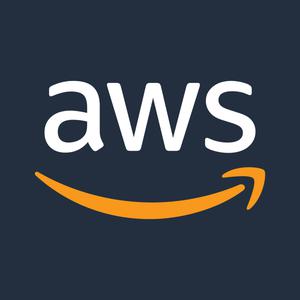 AWS Podcast
AWS Podcast
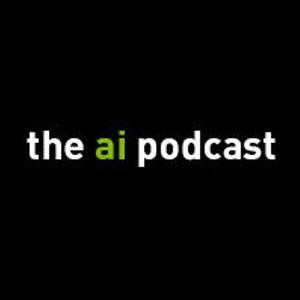 The AI Podcast
The AI Podcast
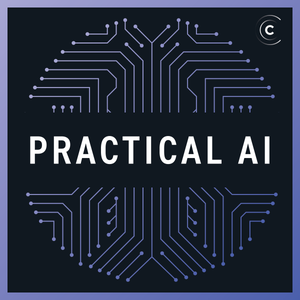 Practical AI: Machine Learning, Data Science, LLM
Practical AI: Machine Learning, Data Science, LLM
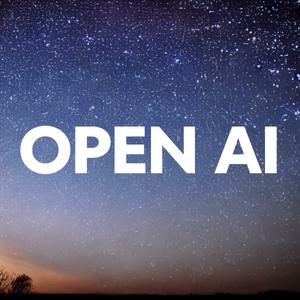 Open AI: News on, ChatGPT, Midjourney, NVIDIA, Anthropic, Open Source LLMs, Machine Learning & NLP
Open AI: News on, ChatGPT, Midjourney, NVIDIA, Anthropic, Open Source LLMs, Machine Learning & NLP
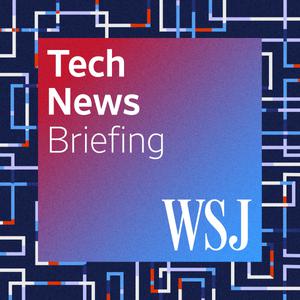 WSJ Tech News Briefing
WSJ Tech News Briefing
 Security Now (Audio)
Security Now (Audio)